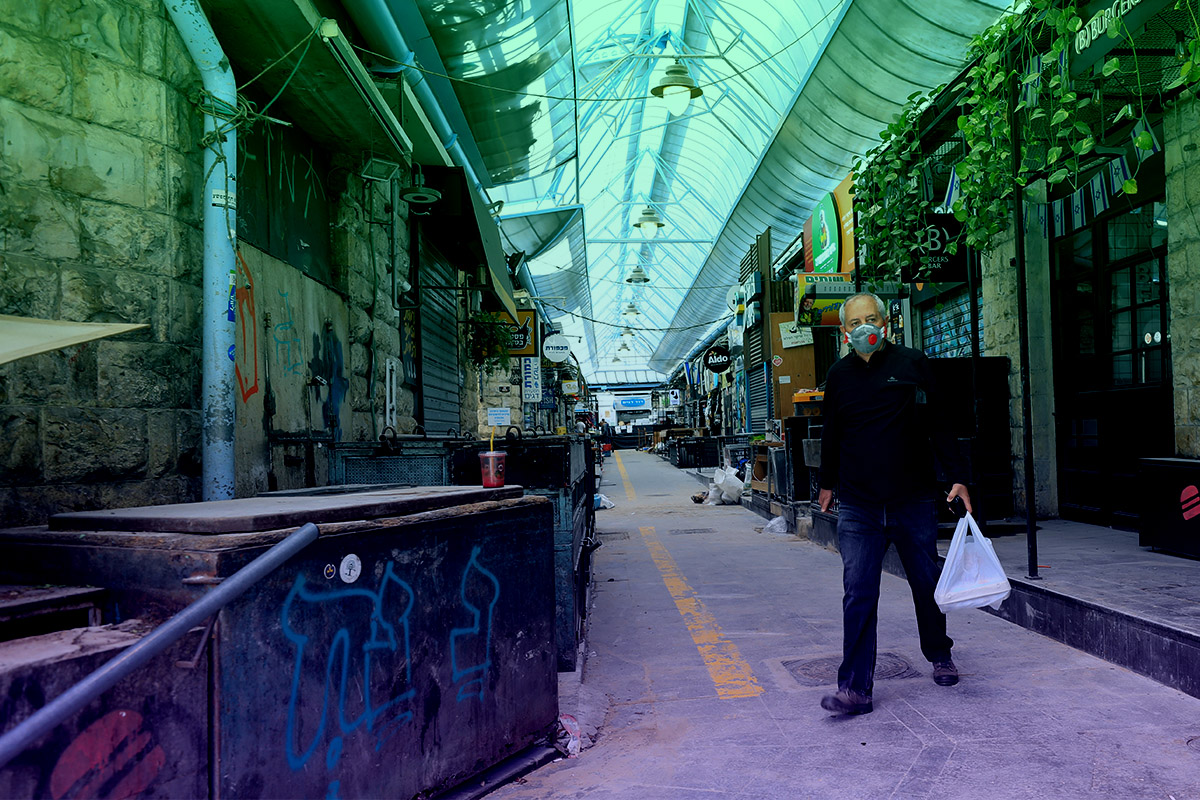“When it’s all over, I want the life of patient 270!” wrote a friend on Instagram Stories a week ago. She was referring to the nameless-but-already-famous coronavirus patient who flew into Israel on a private jet, and whose lavish step-by-step schedule, as far as it could be traced, was published on the Israeli Ministry of Health’s website.
Ever since COVID-19 became the topic of routine dread and media coverage, Israel has been doing something the U.S. wouldn’t dare dream of: publicize the detailed routes of people infected with the virus, on all the governmental channels. No faces and names, of course — just the most miniscule info about one’s day.
The documentation started with infected Israelis landing back in the country from a vacation and spending their time wandering the country’s shopping malls, public transport, and events — that is, before all events got cancelled — until being diagnosed. Once diagnosed, every patient has been required to self-quarantine (or, unfortunately, hospitalize). Backtracking and retelling the authorities everything they did in Israel until then — the stores and restaurants they visited and at what exact time and date, every bus they took and every party they attended — has been part of the deal since day one. Then, the route would appear, hour by hour, on all the main news websites, as well as on a dedicated portion of the Ministry’s website.
The government’s intentions were seemingly pure: to notify worried citizens about possible contingence points with verified virus carriers. The effect, however, was beyond anyone’s wildest dreams; never the ones to be politically correct, the citizens of Israel took the published routes and ran with them. Having moved to the U.S. in 2012, I came back to Israel during corona season, out of an irrational urge to be with my family. The lively buzz around the routes was the first thing to catch my attention after settling in. There’s been memes on social media, highlighting and mocking, or perhaps admiring, the daily lives of certain patients. There’s been friends sending screenshots of the routes’ funniest or weirdest details and posting them on Instagram. It’s clear that what had started as a privacy-bursting act of goodwill and civil duty became a vast source of public entertainment and gossip.
Alongside general disdain at some people’s boring routines, “iconic” patients were born, like one very industrious woman who, in a span of a day, managed to visit every store of a large Tel Avivian shopping mall, then work out and dine on sushi, or a man who was documented to eat pancakes at a well-known roadside diner at 6 a.m. “This is the most beautiful and wretched reality TV show,” wrote journalist Netta Hoter is a March column for the website Mako, adding that the routes expose the very things Instagram and Facebook posts want to erase — the fact that everyone’s lives are both pretty average and endlessly comical.
This COVID-19 plot twist raises questions about the fragility of privacy, sure, but one thing is certain: In no other country could this bittersweet scenario develop more organically. “Israelis are nosy people. We love to criticize and make fun,” says Liron Bonano Stern, a content manager in the travel industry who’s been put on furlough due to the latest developments. She’s a self-described addict when it comes to patients’ routes. “Now, with all the quarantine around us, what else is left to do? So we dig into the lives of others.” Bonano Stern, who has a baby, marvels at the routes more than anything. “Some people are so, so busy and do so much!” she says. At the same time, when checking the routes, she’s always relieved to not have crossed paths with the patients. “It’s like JOMO and FOMO combined,” she laughs. “You envy other people’s fun activities but also happy you weren’t there.”
Dana Perry, a currently unemployed tech sales manager, has been sending screenshots of funny route details to friends ever since the coverage unfolded. “It’s our knack for voyeurism and the Israelis’ gossipy nature,” she says when I ask her why everyone in Israel is so into patients’ routes. “It’s also about admiring people’s tenacity, like if there’s a soldier who, after a day of service, still has the energy to party and meet friends, while all you do is lay on the sofa.”
Having crossed 1,000 patients in March, Israel has stopped documenting individual routes and now publishes a daily, city-specific list of places diagnosed corona patients had visited. The lists, albeit less personal, are still microcosms of human existence: shoe stores, unglamorous coffee shops, synagogues, and the occasional gem, like a diamond-polishing factory. There’s comfort and humor to be found in the lists, too. Thanks to this nationwide obsession in Israel, the now-cliched “we’re all in this together” pandemic mantra has a whole new meaning.
Header Image: A wearing a mask makes his way in an alley at Jerusalem’s Mahane Yehuda market on April 2, 2020 amid the coronavirus COVID-19 pandemic. Photo by EMMANUEL DUNAND/AFP via Getty Images.



